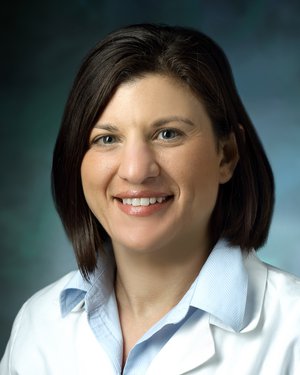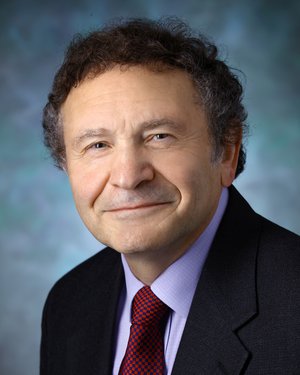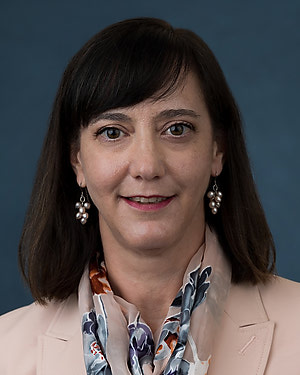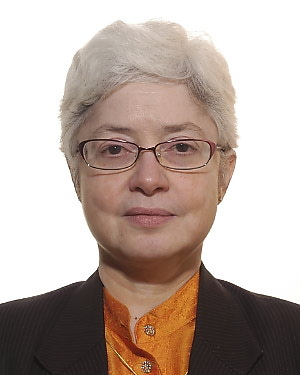Research Lab Results
-
Kristine Glunde Lab
The Glunde lab is within the Division of Cancer Imaging Research in the Department of Radiology and Radiological Science. The lab is developing mass spectrometry imaging as part of multimodal molecular imaging workflows to image and elucidate hypoxia-driven signaling pathways in breast cancer. They are working to further unravel the molecular basis of the aberrant choline phospholipid metabolism in cancer. The Glunde lab is developing novel optical imaging agents for multi-scale molecular imaging of lysosomes in breast tumors and discovering structural changes in Collagen I matrices and their role in breast cancer and metastasis. -
Gilkes Lab
Our lab is focused on determining the role of hypoxia in breast cancer metastasis. We are particularly interested in the changes in the extracellular matrix that occur under hypoxic conditions and promote cancer cell migration.
-
Saraswati Sukumar Lab
Our lab is focused on using comprehensive gene expression, methylation and sequencing and metabolomics analysis to identify alterations in breast cancer, and exploiting these for early detection and therapy. Among deferentially expressed genes, our lab has focused on the HOX genes. HOX genes are intimately involved in the development of resistance to both chemotherapy and to agents targeting the estrogen receptor. Our work explores the alternate pathways that are activated by HOX proteins leading to this resistance and novel treatments to overcome resistance in both tissue culture and xenograft models. In addition, epigenetically silenced genes and a metabolic reprogramming in tumors also trigger novel early detection and therapeutic strategies. We are testing the utility of differentiation therapy through reactivating RAR-beta in breast cancer using histone deacetylase inhibitors with great success. Also, we are targeting enzymes involved in gluconeogenesis and glycolysis with small molecule FDA-approved antimetabolites to achieve antitumor effects.
-
Follow the Leader: Specialized Cancer Cells Lead Collective Invasion (Ewald Lab)
Research in the Ewald laboratory starts from a simple question: Which cells in a breast tumor are the most dangerous to the patient and most responsible for metastatic disease? To answer this question, we developed novel 3-D culture assays to allow real-time analysis of invasion. Our data reveal that K14+ cancer cells play a central role in metastatic disease and suggest that the development of clinical strategies targeting these cells will provide novel breast cancer treatments. -
Systems Biology Laboratory
The Systems Biology Lab applies methods of multiscale modeling to problems of cancer and cardiovascular disease, and examines the systems biology of angiogenesis, breast cancer and peripheral artery disease (PAD). Using coordinated computational and experimental approaches, the lab studies the mechanisms of breast cancer tumor growth and metastasis to find ways to inhibit those processes. We use bioinformatics to discover novel agents that affect angiogenesis and perform in vitro and in vivo experiments to test these predictions. In addition we study protein networks that determine processes of angiogenesis, arteriogenesis and inflammation in PAD. The lab also investigates drug repurposing for potential applications as stimulators of therapeutic angiogenesis, examines signal transduction pathways and builds 3D models of angiogenesis. The lab has discovered over a hundred novel anti-angiogenic peptides, and has undertaken in vitro and in vivo studies testing their activity under different conditions. We have investigated structure-activity relationship (SAR) doing point mutations and amino acid substitutions and constructed biomimetic peptides derived from their endogenous progenitors. They have demonstrated the efficacy of selected peptides in mouse models of breast, lung and brain cancers, and in age-related macular degeneration.
-
Claire Snyder Lab
Researchers in the Claire Snyder Lab study the quality of cancer care, with a special focus on two areas: the quality of life for cancer patients undergoing treatment and the coordination of care between cancer specialists and primary care providers. As part of our quality-of-life research, we're investigating the use of patient-reported outcome questionnaires in routine oncology practice as well as developing a website for collecting the questionnaires and linking them with the electronic medical record. As part of our cancer-survivorship research, we've conducted large database studies to identify the physician specialties involved in the care of cancer survivors and to determine how that relates to survivors receiving recommended follow-up care. We're also working with investigators in the Sydney Kimmel Comprehensive Cancer Center to develop care strategies for breast cancer survivors.
-
Dmitri Artemov Lab
The Artemov lab is within the Division of Cancer Imaging Research in the Department of Radiology and Radiological Science. The lab focuses on 1) Use of advanced dynamic contrast enhanced-MRI and activated dual-contrast MRI to perform image-guided combination therapy of triple negative breast cancer and to assess therapeutic response. 2) Development of noninvasive MR markers of cell viability based on a dual-contrast technique that enables simultaneous tracking and monitoring of viability of transplanted stems cells in vivo. 3) Development of Tc-99m and Ga-68 angiogenic SPECT/PET tracers to image expression of VEGF receptors that are involved in tumor angiogenesis and can be important therapeutic targets. 4) Development of the concept of “click therapy” that combines advantages of multi-component targeting, bio-orthogonal conjugation and image guidance and preclinical validation in breast and prostate cancer models.
-
Zaver M. Bhujwalla Lab – Cancer Imaging Research
Dr. Bhujwalla’s lab promotes preclinical and clinical multimodal imaging applications to understand and effectively treat cancer. The lab’s work is dedicated to the applications of molecular imaging to understand cancer and the tumor environment. Significant research contributions include 1) developing ‘theranostic agents’ for image-guided targeting of cancer, including effective delivery of siRNA in combination with a prodrug enzyme 2) understanding the role of inflammation and cyclooxygenase-2 (COX-2) in cancer using molecular and functional imaging 3) developing noninvasive imaging techniques to detect COX-2 expressing in tumors 4) understanding the role of hypoxia and choline pathways to reduce the stem-like breast cancer cell burden in tumors 5) using molecular and functional imaging to understand the role of the tumor microenvironment including the extracellular matrix, hypoxia, vascularization, and choline phospholipid metabolism in prostate and breast cancer invasion and metastasis, with the ultimate goal of preventing cancer metastasis and 6) molecular and functional imaging characterization of cancer-induced cachexia to understand the cachexia-cascade and identify novel targets in the treatment of this condition. -
Venu Raman Research Lab
The Raman laboratory is within the Division of Cancer Imaging Research in the Department of Radiology and Radiological Science. The focus of the laboratory is bench-to-bed side cancer research. We integrate molecular and cellular biology, developmental biology, cancer biology, molecular imaging techniques to study cancer formation and progression. Many of the projects in the lab investigate dysregulated genes in cancer and the translatability of this information to a clinical setting. One such project is to functionally decipher the role of a RNA helicase gene, DDX3, in the biogenesis of multiple cancer types such as breast, lung, brain, sarcoma, colorectal and prostate. Additionally, using a rational drug design approach, a small molecule inhibitor of DDX3 (RK-33) was synthesized and its potential for clinical translation is being investigated.
-
Radiopharmaceutical Therapy and Dosimetry Lab
The Radiopharmaceutical Therapy and Dosimetry (RTD) Lab has two missions: 1. Support clinical Radiopharmaceutical Therapy (RPT) trials by performing patient-specific dosimetry and developing novel methods that advance this field and illustrate the impact of a precision medicine approach to implementing treatment planning in RPT. This includes radiobiological modeling and microscale dosimetry calculations for alpha-particle emitter RPT. 2. Pre-clinical studies using novel alpha-emitter RPT agents with immune intact transgenic animal models that incorporate modeling and dosimetry to support the translation of novel targeted radionuclide therapy strategies to the clinic. In particular, identifying how to best combine RPT with complementary orthogonal-modality agents while also obtaining a basic understanding of how the treatment works and which variables have the greatest impact on efficacy and toxicity. The underlying objective is to utilize pre-clinical modeling and dosimetry to help identify an optimal therapeutic clinical trial design so as to reduce unnecessary human experimentation.
Principal Investigator



